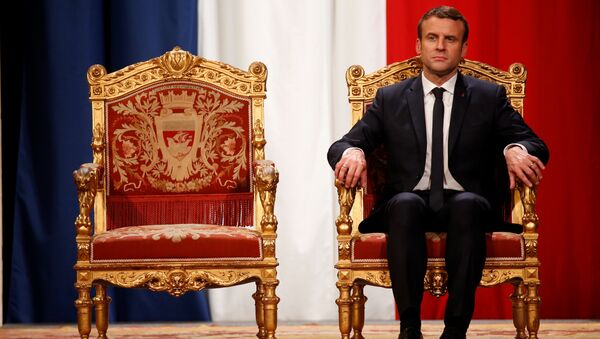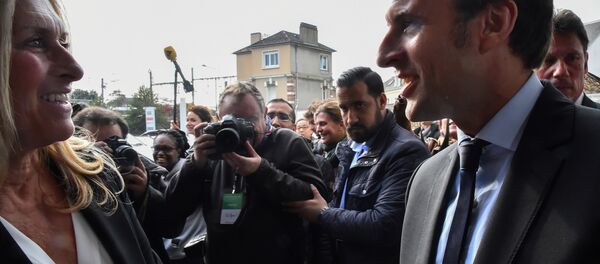The Benalla affair, involving presidential security aide Alexandre Benalla, who was caught illegally beating protestors at this year's May Day demonstrations, reached a crescendo last week as France's National Assembly debated two no-confidence motions against the Macron government.
Although the government survived, thanks to support from Macron's La Republique En Marche party, which enjoys a comfortable majority of seats in the French lower house, pundits and lawmakers both in France and abroad believe the affair, and particularly the presidential administration's effort hush it up, will become a major blot on Macron's presidency at least, and at most could culminate in his political downfall.
In May 2017, the paper wrote, the freshly-elected President presented himself as a "torch of Europe," the man at the helm of both France, with its rich history, and of Europe, and their 'common, liberal future'.
Just over a year later, his government was facing the risk of being toppled. The no confidence measures may have been formally addressed toward the government, but were really aimed at the "sovereign," i.e. Macron, who "was accused of the typical royal sin — arrogance," according to Dagens Nyheter.
The newspaper doesn't believe that the failed no confidence measures will develop into anything more, given that the En Marche! Party, or more accurately, Macron's "personal election campaign machine," could easily block any block any such initiatives. "However, the debate, both inside and outside the National Assembly, serves as a warning signal for both Macron and the liberal-oriented, pro-EU part of Europe, which had seen his presidency as the bulwark against Brexiters, nationalists and Putinists."
The Benalla case, according to Dagens Nyheter, is a perfect illustration of the reality that the French President "uses the maxim that the rules don't apply to [the royal court's] musketeers."
Ultimately, the paper argues, "no matter how attractive and important Macron's role as defender of progressive values may seem, it must be remembered that he owes his success to the defeat of France's traditional party politics. It is extremely disturbing that liberal Europe now attaches its hopes to the same political archetype on which the offensive of the authoritarians and nationalists is built – a charismatic, strong leader," the paper concludes.



